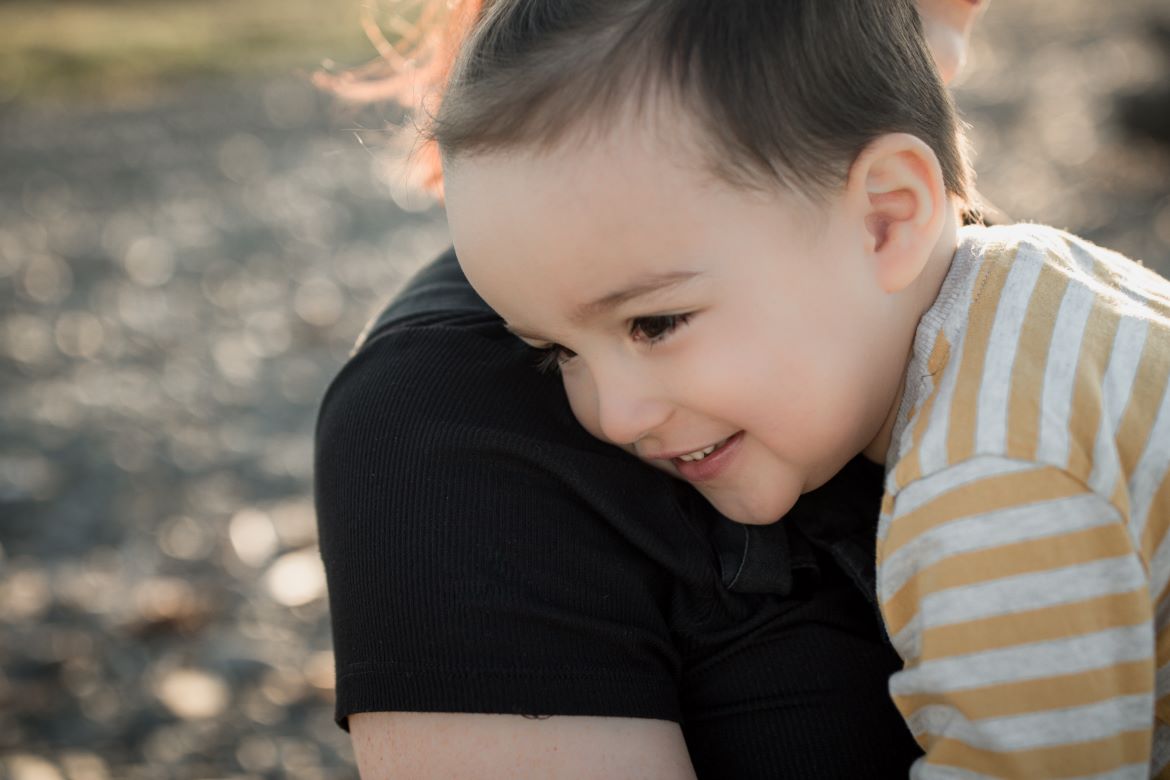By Dr. Laura Markham
“I recently discovered Aha! Parenting and am trying hard to change things at our house, but my kids seem to be acting out more. So I still lose it. And I feel so guilty about the past. What am I doing wrong?”
Shifting your parenting approach is a big transition, and you can expect some bumps as you and your whole family learn new patterns of relating. Those bumps don’t mean that you’re doing anything wrong, even if your child sometimes “acts worse” than she ever would have before. In fact, what’s happening when your child acts out is that she’s showing you feelings from the past, from those times when you yelled or punished, and she felt so alone and misunderstood. It takes extra compassion from you, but your empathic response will heal those hurts so you can all move on. You might think of it as healing old hurt feelings so they stop driving new bad behaviour.
Many parents also find themselves feeling guilty for the way they acted before they discovered peaceful parenting. But feeling bad doesn’t help you act “good,” any more than it helps your child.
So ditch that guilt. You’re paying the price, after all, and making amends now, by helping your child heal those old hurt feelings.
Still wondering how anyone makes it through even one evening parenting “peacefully”? Here’s your plan. Take it step by step.
1. Start with yourself
The “peace” in peaceful parenting comes from you. Specifically, from your commitment to regulate your own emotions. That means that when you feel upset, you stop, drop your agenda (temporarily), and breathe. You notice the sensations in your body, which helps you be more present, so you don’t get hijacked by anger. You refuse to act on that urgent “fight or flight” feeling that makes your child look like the enemy. Whenever possible, you delay taking action until you feel more calm.
This takes practice — both in the moment with your child, and in general, as you become more aware of your own thoughts and emotions. It’s not easy. In fact, it’s really, really, hard. Every time you do this, though, you’re building gray matter in your brain, which develops impulse control. And you’re excavating those triggers, so you don’t get upset so often.
2. Focus on Connecting
Peaceful parenting doesn’t work without connection. So before you change anything else with your child, start building up your bond. Otherwise, you’ll drop your punishments, but your child still won’t feel motivated to “do right” and you’ll just see more testing behaviour.
Start spending at least 15 minutes connecting one-on-one with each child daily, just following his lead and pouring your love into him.
You’ll be amazed at the difference in the way he responds to your requests.
3. Explain what’s happening
Once you see more connection and cooperation, initiate a discussion.
“You know how I used to yell at you and send you to your room when you broke the rules? Have you noticed that I’ve been yelling a lot less? I’m so sorry that I’ve gotten into a bad habit of yelling so much. I love you so much, and I know you try hard. You don’t deserve to be yelled at, no matter what. No one does.
We still have all the same rules. So it is never okay to lie or break promises or hit your brothers. But we think you’ll learn more from cleaning up your messes and repairing your mistakes than from being punished, don’t you? So when you damage something –including a relationship with someone in our family– we expect you to make a repair. We’ll always be there to help. And when you’re upset, we want to help you with whatever problem you’re having.
Let’s begin by having a family meeting about what household rules are important to us.”
4. Ask for cooperation
“Our most important rule is that in this house we treat each other with kindness. I’m going to work very hard not to yell at you, and to really listen and be kind. Do you think you can work on this rule, too, and be kind to your sister?” You can count on your child losing control sometimes and breaking the kindness rule. Resist the temptation to use that to justify your own yelling — you’re the role model, after all.











